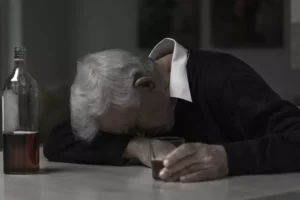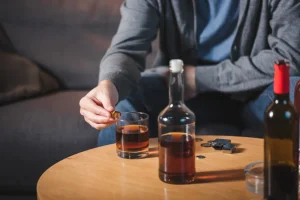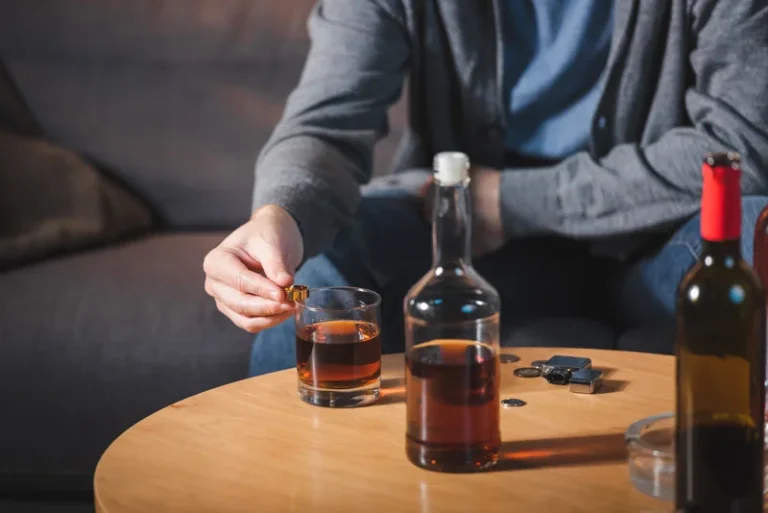50 Substance Abuse Group Therapy Activities for Recovery

It sounds simple, but it can be surprisingly challenging and enlightening. Many people in recovery struggle to identify and express their emotions accurately. This game helps them expand their emotional vocabulary and become more attuned to nonverbal cues. So let’s raise a (non-alcoholic) toast to the power of community, creativity, and good old-fashioned fun in the journey of recovery. After all, a life reclaimed from addiction should be one worth living – and enjoying – to group activities for addiction recovery the fullest.
Discover Therapy Worksheets to Help Your Clients and Streamline Your Practice
It’s not uncommon for individuals who struggle with addiction to relapse after completing treatment, and it doesn’t mean that treatment failed. Instead, a relapse indicates that additional treatment is needed or a different form of treatment is needed. Aftercare plans may be modified over time as your needs and goals change.
Enroll in Our Group Therapy Program at Woodland Recovery Center
While traditional talk therapy plays a vital role, experiential activities for group therapy offer a dynamic way to engage participants on a deeper, emotional level. These hands-on exercises help individuals explore their feelings, build trust, and gain insight into their recovery journey. Structured activities within these groups are highly effective in promoting personal growth, enhancing self-awareness, and building strong community bonds that can bolster resilience. This can include medication-assisted treatment, group therapy, individual therapy, life skills groups, psychoeducation groups, and support groups.
Outpatient Aftercare Treatment

Hearing how others manage challenges and having the opportunity to share their own journey, encourages people to take charge of their recovery with a renewed sense of confidence. Setting boundaries protects mental and emotional well-being by maintaining healthy relationships. This topic helps members learn to set boundaries in relationships, especially with people who may not support their recovery. Loneliness is a significant trigger for relapse, so finding ways to connect with others is crucial. This discussion focuses on the risks of isolation and encourages members to reach out for support, fostering a sense of community and connection.

Try Role-Playing Exercises

Empathy strengthens connections by helping individuals understand others’ experiences and feelings. This topic includes role-playing exercises that allow members to practice empathy and see situations from different perspectives, which can improve relationships and communication. Accountability is a powerful tool that helps individuals stay committed to their recovery goals. This topic discusses ways to hold oneself accountable, such as setting goals, journaling progress, or finding an accountability partner who can offer support and encouragement. Stress is a common relapse trigger, making stress management essential.

Yoga and Movement Therapy
This topic provides education on the health risks of addiction, helping members understand the importance of maintaining a healthy lifestyle. Rediscovering a sense of purpose and passion is a motivating part of recovery. This discussion encourages members to reflect on what brings them joy and meaning and to set goals that align with their values. Finding purpose can help members stay motivated and focused on building a fulfilling, sober life.
This discussion covers techniques like journaling, physical exercise, and mindfulness practices to help members cope with stress healthily. Exercise can boost mood, reduce stress, and improve overall health. This discussion explores different types of physical activities and encourages members to incorporate regular exercise into their lives. Physical fitness supports both mental resilience and physical recovery. This topic explores strategies for maintaining healthy, supportive relationships that encourage sobriety.
Problem-Solving Activity To Manage Triggers
Addiction recovery group activities are wonderful tools for achieving and maintaining successful, long-term sobriety. They are a form of group therapy available free of charge all over the world, with no membership requirements (other than the desire to lead a life free of substance abuse). One of the most common experiences people in recovery share is cravings and triggers to drink or use drugs, and discussing them can help prevent relapse. In a substance abuse group, members can discuss their triggers along with coping skills they have found useful. The more you learn about triggers and how to manage them, the easier it is to maintain your recovery. Identifying and celebrating personal strengths can boost self-esteem and resilience.
- Mindfulness teaches individuals to stay focused on the present moment, reducing anxiety and cravings.
- For an added step, have the person answer a prompt and pass the prompt to a second person for an additional response or positive discussion.
- As individuals continue in recovery group activities, they begin to develop very strong bonds with one another.
- Participants realize they’re not alone in their struggles, which can be incredibly validating and empowering.
- This discussion emphasizes the importance of regular self-care practices, which are often neglected during substance use.
Identifying Triggers
Activities can encourage discussion when members may be reluctant or unsure of how to contribute to the conversation. Lastly, substance abuse group activities can provide group leaders with an opportunity to provide psychoeducation in an interactive way that members respond to. Connecting with nature can be deeply healing, and this experiential activity for group therapy combines physical activity with mindfulness.
The Power of Positive Affirmations
In group sessions, everyone knows that everyone else there has faced similar issues. This can create a sense of camaraderie and trust among participants. There are numerous benefits to group therapy and peer support meetings that aren’t available in a one-on-one setting. Peer recovery groups, like Alcoholics Anonymous (AA) and other 12-step groups, are peer-led, non-professional options for building a support system during recovery. That’s why some recovery groups have members anonymously write down their fears and place them in a bowl or bag. The group leader then reads each fear, allowing members to identify shared fears and feel less alone.
